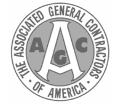Are Fire Sprinklers Green?
Opponents of home fire sprinklers typically argue fire sprinklers systems use up large quantities of municipal water and are bad for the environment. Truth is, it’s quite the opposite—homes without fire sprinklers are actually much worse!
Defining a Fire Sprinkler’s Environmental Impact
The Home Fire Sprinkler Coalition (HFSC) partnered with FM Global on an unprecedented research project designed to identify, analyze, and evaluate the environmental impact of home fires. In October 2009, they ran a series of full-scale fire tests comparing fire in sprinklered vs. unsprinklered homes, and came up with the following results. In homes with fire sprinkler systems installed:
- Greenhouse gas emissions were cut by 97.8 percent
- Water usage (particularly from fire hoses)was reduced between 50 and 91 percent
- Fewer persistent pollutants, such as heavy metals, were found in sprinkler wastewater versus fire hose water
- The high pH level and pollutant load of fire hose wastewater are an environmental concern
According to Gary Keith, the NFPA’s Vice President of Field Operations and Education, “It’s time for the fire service and other home fire sprinkler advocates to help local water providers recognize that fire sprinkler systems are good for both fire safety and the environment.”
To help move this effort forward, HFSC has developed a Home Fire Sprinkler System Water Supply Guide that includes print and video material on water usage. Using this information to inform local water supplies and the public about sprinkler benefits will hopefully avoid the “failures” of housing developments built without sprinkler protection, says Keith.
Home Fire Sprinklers are Good for Communities
Home fire sprinkler systems have been used to protect life and property for over a century. Fire sprinklers provide the ultimate fire protection for homes, where people are at greatest risk of fire injury and death. Surprisingly, in the majority of home fires, only one sprinkler is needed to control the blaze!
Simply put, sprinklers make up for human error. And because they operate automatically, they will keep the home protected even if residents are asleep when a fire starts.
Sprinklers react while the fire is still small, controlling flames and smoke with 90 percent less water than it would take the fire department’s hoses, were fire sprinklers not installed. They reduce fire damage by 97 percent and reduce greenhouse gas emissions by 98 percent. Sprinklers also reduce wastewater runoff and pollution.
In addition, fire sprinkler systems improve community infrastructure and will continue to protect residents and firefighters for generations to come.
Nine out of every 10 structural fire deaths happen in homes. Fire sprinkler systems provide automatic, fast protection that prevents injuries and saves lives, both of residents as well as firefighters. Sprinklers also protect property.
- Sprinklers are connected along a network of piping, typically hidden behind walls and ceilings.
- Each sprinkler operates individually—they do not flow water all at once.
- Sprinklers operate in response to the high heat of a fire, not to smoke or smoke alarm activation.
If you want to install a fire sprinkler system in Houston, Texas, call Kauffman Co. today!















